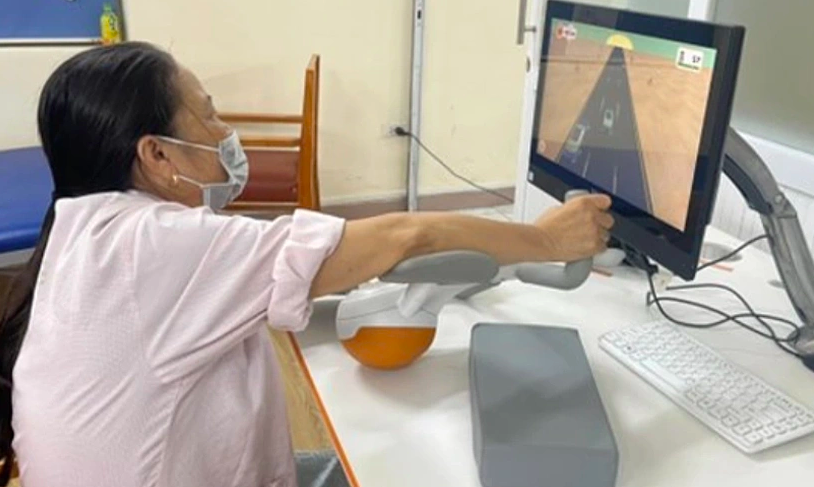Dr. Nguyen Tien Dung, Deputy Director of the Stroke Center at Bach Mai Hospital, explained that the brain is a complex communication network relying on neurotransmitters to transmit signals. Acetylcholine is a crucial neurotransmitter for memory and learning.
Whether ischemic or hemorrhagic, stroke causes a sudden lack of oxygen and nutrients, damaging brain cells. This severely disrupts acetylcholine production and release. Choline levels, the precursor to acetylcholine, drop rapidly. The brain's communication network is disrupted, leading to cognitive decline.
Stroke is a leading cause of death and disability worldwide and in Vietnam. Stroke recovery often focuses on regaining physical abilities like walking and talking. However, cognitive decline is a less visible yet profound consequence affecting patients' and families' quality of life.
According to Dr. Dung, cognitive decline is a common but often overlooked issue. It's more than just forgetfulness; it affects many brain functions:
Memory: Patients struggle to retain new information and frequently forget recent events.
Executive function: Difficulty with planning, problem-solving, and decision-making, even for familiar daily tasks.
Attention: Easy distractibility and inability to focus for extended periods.
Language: Difficulty finding words and expressing oneself fluently.
Spatial and social cognition: Changes in behavior and emotions, and difficulty interpreting social cues.
Patients are often aware of their decline. They experience confusion and frustration with simple tasks, leading to stress, depression, and social isolation. This is a "silent burden" on both patients and families.
 |
Stroke patient undergoing virtual reality-based rehabilitation at Bach Mai Hospital. Photo: Hospital provided |
Stroke patient undergoing virtual reality-based rehabilitation at Bach Mai Hospital. Photo: Hospital provided
Dr. Dung noted that post-stroke cognitive decline can be managed and slowed with a comprehensive treatment strategy. Addressing risk factors like high blood pressure, diabetes, dyslipidemia, atrial fibrillation, and maintaining a healthy lifestyle are crucial first steps. Preventing a second stroke protects the brain from further damage.
In addition to risk factor management, pharmacological therapies are vital. Cholinesterase inhibitors help preserve remaining acetylcholine, enhancing neurotransmission. Choline supplementation significantly improves cognitive scores, restores neuronal membranes, and aids recovery. This therapy is proven effective and included in treatment guidelines in Vietnam and internationally.
Post-stroke rehabilitation is multifaceted, including physical therapy for motor recovery, occupational therapy for daily living skills, speech therapy for communication, and cognitive rehabilitation with "brain training" exercises. Psychological support, such as counseling, helps patients and families cope with emotional challenges.
"Stroke recovery is a long journey requiring patient persistence and family support and understanding. Cognitive decline is part of that journey, not the end," said Dr. Dung.
If you or a loved one experience memory problems, difficulty concentrating, or behavioral changes after a stroke, consult a doctor. Early diagnosis and timely intervention with a comprehensive strategy can slow decline, improve function, and enhance quality of life.
Le Nga












